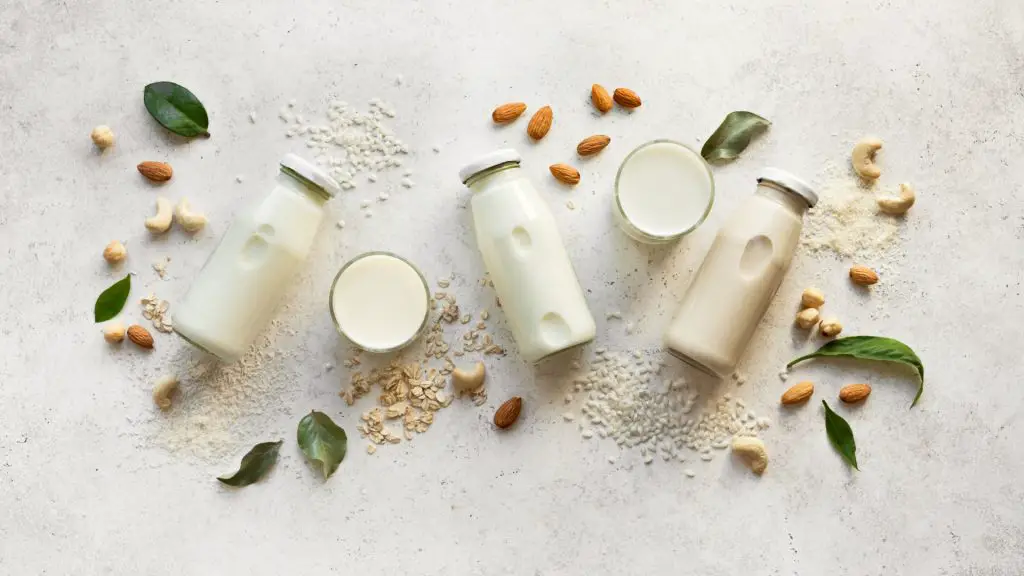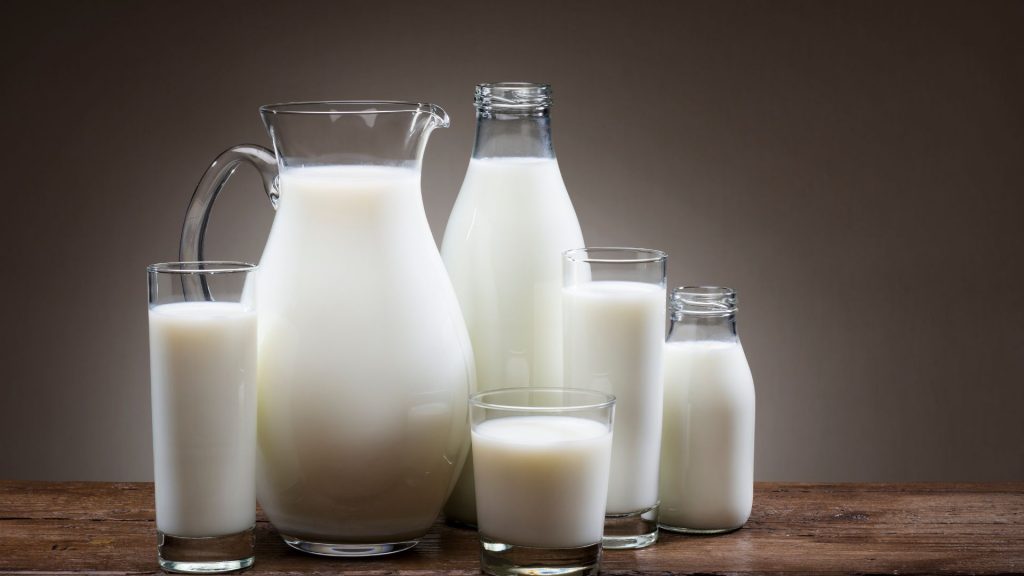It’s no jaw-dropper that milk is an essential part of the average diet. Milk is high in calcium, which benefits your bones and teeth.
Milk also provides energy and a wide range of vitamins and minerals. But these benefits can differ depending on what type of milk you are drinking. From nut-based milk to dairy, we’ll explore what is the healthiest milk to drink, along with milk benefits and milks disadvantages.
Is cow’s milk good for you?

Milk is an essential source of nutrition. Still, with so many different types of milk now available, it can be challenging to determine which type is the healthiest. So, is cow’s milk healthy?
Whole cow milk contains roughly 90% water; the other 10% contains macronutrients such as fat, protein, and carbohydrates, along with minerals and vitamins. Cows are often pregnant when milked, and dairy milk may contain hormones like estrogens and progestins. Some cows may also be given extra hormonal therapies to make more milk.
Cow’s milk is also a source of Vitamin b12, which can aid in the normal energy-yielding metabolism and reduction of tiredness and fatigue. It can also contain potassium, a critical mineral required by tissues in the body.
Riboflavin, also known as Vitamin b2, is often found in dairy products such as milk and also veggies. Vitamin b2 assists enzymes throughout the body to complete tasks. Animal studies have also proven that a Vitamin b2 deficiency can develop cancer.
Potential risks of cow’s milk
Every glass of milk we drink takes calcium from our bones. Animal proteins produce acid when broken down, and calcium is an excellent acid neutralizer, so to neutralize and wash out the acids, our bodies will use the calcium that the milk contains. Cow’s milk also contains lactose, so you should probably opt for lactose-free cow milk. Dairy milk such as cow’s milk have been linked to an increased risk of generating prostate cancer.
Many alternatives are available for those unable to consume cow’s milk or choose not for other reasons, such as
- Almond Milk,
- Coconut Milk,
- Oat Milk,
- Soy Milk
- Hemp Milk,
Is goat’s milk healthy?

Goat’s milk is becoming increasingly popular for those looking for an alternative to cow’s milk. With its unique taste and texture, goat’s milk has become a staple in many households worldwide. Is goat’s milk that much better than cow’s milk? To answer this question, let’s examine some nutritional benefits of drinking goat’s milk.
Goat’s milk is an excellent source of Protein, Calcium, Potassium, Phosphorus, and Magnesium. Goat’s milk can also help people with high cholesterol control their cholesterol levels more effectively. Studies have found that goat milk may help lower cholesterol by improving the arteries and gallbladder.
Possible risks of goat’s milk
There aren’t many direct disadvantages to drinking goat’s milk, but goat’s milk is not lactose-free. So if you are lactose intolerant, we don’t suggest you drink goat’s milk and to find a suitable alternative to these milks which contain lactose.
What is Plant-Based milk?

Plant-based milk, aka non-dairy milk, is a type of milk that is made from plant sources rather than from animals. It is a popular alternative to cow’s milk for people who are lactose intolerant, allergic to milk or follow a vegan or plant-based diet. It can also be the best milk for weight loss.
There are many different types of plant-based milk, including soy milk, almond milk, coconut milk, oat milk, and rice milk.
Each type is made by grinding up the plant and mixing it with water to create a milk-like substance. Plant-based milk is often fortified with vitamins and minerals to make it a more nutritious alternative to cow’s milk.
The best milks for gut health is actually almond milk, coconut milk or even hemp milk. You might also want to try kefir if you're looking for a healthy gut.
What are the disadvantages of drinking Plant-Based milk?
One disadvantage is that plant-based milk is often not as nutritionally complete as dairy milk. Dairy milk is a good source of protein, calcium, and other vital nutrients, while much plant-based milk is not.
Some plant-based milks are fortified with additional nutrients to make them more similar to cow’s milk, but they may still not provide all of the nutrients that cow’s milk does.
Another potential disadvantage of plant-based milk is that it can be more expensive than cow’s milk. While the price of plant-based milk has decreased in recent years, but it is still generally more expensive than cow’s milk.
Finally, it’s widespread that people may not like the taste of plant-based milks, which is understandable since they are artificial and made from foods.
A brief summary

Milk is one of the most popular and nutritious beverages around. It’s a great source of calcium, protein, potassium, and vitamins. But with so many types of milk on the market today, it can be hard to know which type is the healthiest for you.
The first thing to consider is whether you should opt for full-fat or reduced-fat milks. While full-fat milk may contain more calories and saturated fat than its reduced-fat counterpart, it also contains more essential nutrients, such as calcium and vitamin D, that are beneficial for bone health.
For those looking for an alternative plant-based option, almond milk has become increasingly popular due to its low-calorie content and potential health benefits.
Sources:
https://www.peta.org/living/food/reasons-stop-drinking-milk/
